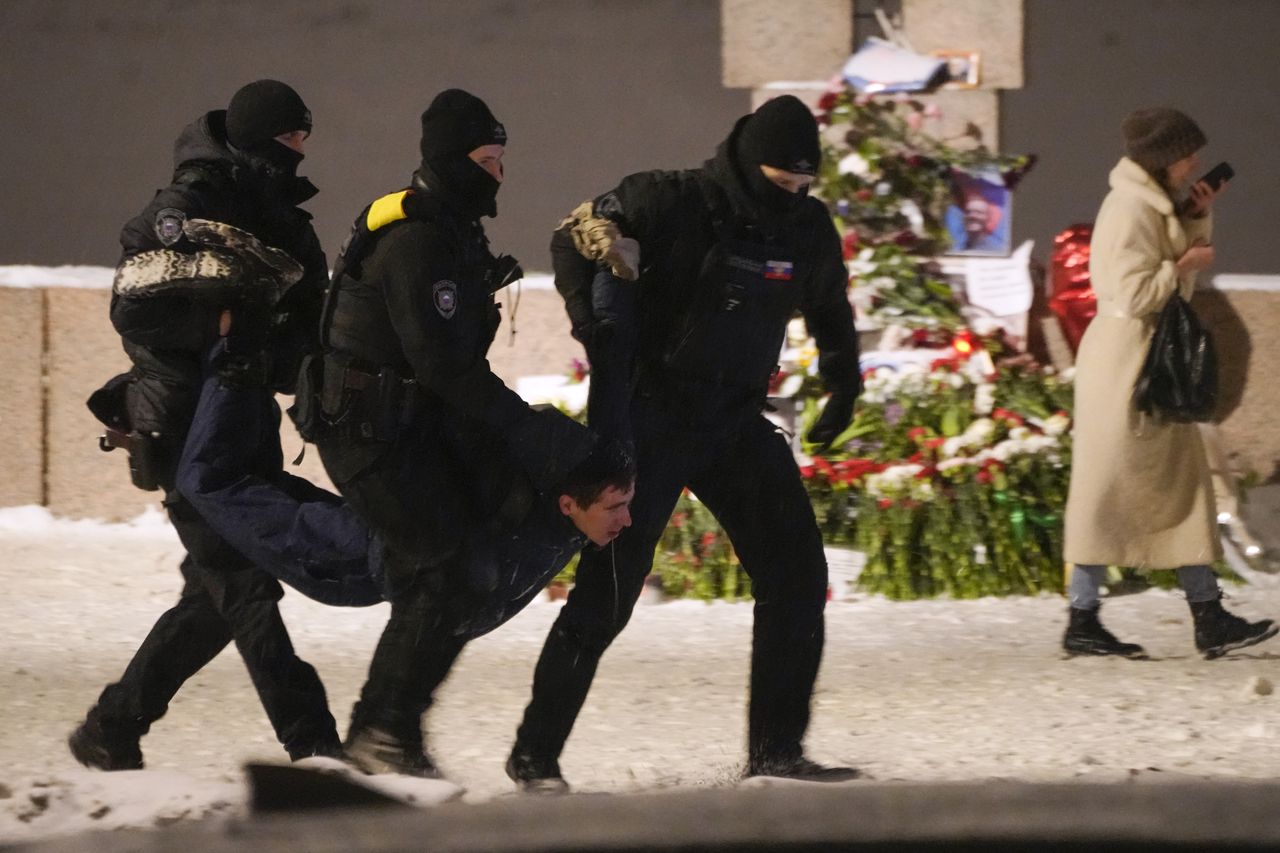Smith: Putin walks back glasnost and perestroika
This is an opinion column.
Overnight, Moscow city officials removed the flowers from the Wall of Grief, a monument to the victims of political persecution by Joseph Stalin during the country’s Soviet era. The Kremlin detained at least 400 mourners in 36 cities after Aleksei Navalny’s death, according to OVD Info. In Russia, Vladimir Putin is rebuilding the Soviet Union with a democratic facade.
Putin’s most vocal critic succumbed to “sudden death syndrome” in a Russian penal colony 40 miles north of the Arctic Circle. “Russian authorities are going to tell their own story,” President Joe Biden told reporters on Friday, “But make no mistake, Putin is responsible for Navalny’s death.”
The KGB-trained authoritarian at Russia’s helm is nothing if not a student of history. Putin has slowly and methodically walked back General Secretary Mikhail Gorbachev’s policies of glasnost and perestroika which directly contributed to the fall of the U.S.S.R.
Glasnost (“openness”) allowed for criticism of Soviet officials as well as a more robust political and social conversation. Gorbachev opened the door for political dissent and outright opposition. The Russian people took him up on the offer. The second policy, perestroika (“restructuring”), decentralized economic decision making and sought to bring the Russian economy into economic parallel with nations like the United States, Germany, and Japan.
On paper, Russia is a federal democratic state, but reality has become quite different. Navalny’s death is a direct rejection of glasnost. Putin understands the power of public critique and emotional momentum. Something as seemingly insignificant as the accumulation of roses marking Navalny’s passing becomes a hazard for state narrative control. Rather than suspending civil liberties in Russia, Putin simply imposes an extremely high transaction cost for using them in a manner which undermines his unquestioned authority. The result is the same.
Russia’s economy wears a similar fig leaf. While technically a market economy, Russian’s means of economic production remains heavily controlled by the state or by Putin’s proxies. When the Soviet Union fell, the heads of state industry largely stifled Gorbachev’s efforts at perestroika. Economic competition exposes market incumbent inefficiency. No where is that vulnerability more prevalent than in a state-controlled economy. The communist cronies of old simply turned into the Russian oligarchs of today. While Putin can argue that Russia is nominally no longer communist, he exercises extreme economic control. Again, it is a distinction without a meaningful difference.
Control was the point for Russia’s communist dictators, and Putin has a keen interest in reclaiming it. Social restrictions and curtailing economic liberties are foundational to authoritarian control, but Putin understands that removing freedom must be done in a piecemeal fashion.
What will it take for Putin to bring back the Soviet Union? When will the Russian people know that their liberties are an illusion?
We’ve already seen the day when men remove roses in the darkness of night hoping that a champion of liberty is quickly forgotten.
Smith is a recovering political attorney with four boys, two dogs, a bearded dragon, and an extremely patient wife. He’s a partner in a media company, a business strategy wonk, and a regular on talk radio. Please direct outrage or agreement to [email protected] or @DCameronSmith on X or @davidcameronsmith on Threads.
